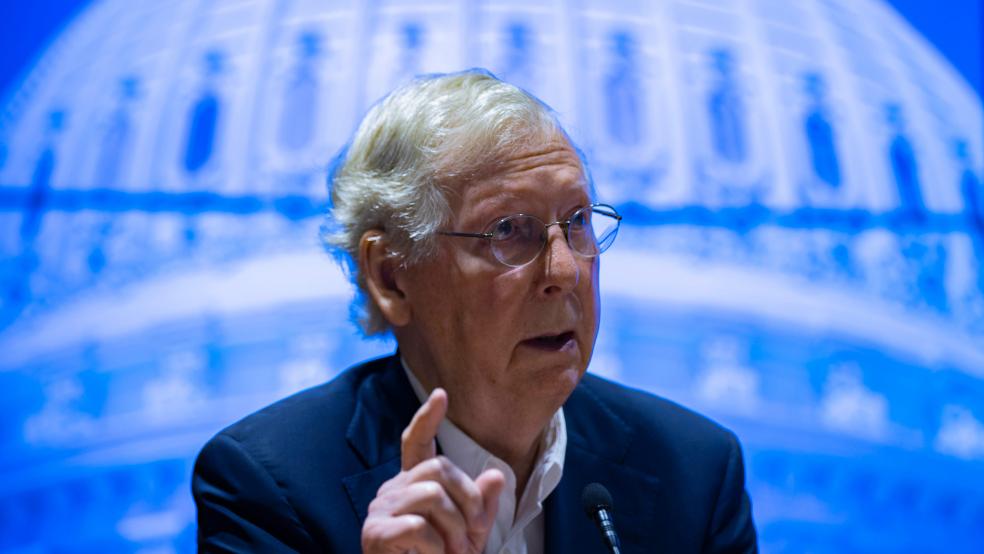The Senate voted 81-11 Monday to advance a nearly $40 billion aid package to Ukraine that was delayed last week by Sen. Rand Paul (R-KY).
The procedural vote to end debate on the bill sets up a final vote later this week, likely Thursday, the date identified by Biden administration officials as the deadline to avoid a lapse in U.S assistance to Ukraine. But 11 Republicans voted “no,” joining 57 House Republicans who opposed the measure in that chamber last week.
That opposition among some GOP lawmakers comes as former President Donald Trump also came out against the aid on Friday. “The Democrats are sending another $40 billion to Ukraine, yet America’s parents are struggling to even feed their children,” Trump said in a statement issued through his Save America PAC. “There is a massive formula shortage, but no one is talking about it—it is a national disgrace.”
Isolationism or nationalism? While the Ukraine aid package still has more than enough support to reach President Joe Biden’s desk, Monday’s vote signals mounting opposition to the funding among some GOP — and an increased willingness to buck Republican leadership on the issue, creating a split within the party. “Their case against spending on Ukraine’s battle against Russia is all about redirecting taxpayer money to domestic problems — but it’s alarming fellow Republicans who see it as a flawed argument and part of a disturbing trend toward isolationism,” Politico’s Andrew Desiderio reports.
Hawley defended his vote as nationalism rather than isolationism. “Spending $40 billion on Ukraine aid - more than three times what all of Europe has spent combined - is not in America’s interests. It neglects priorities at home (the border), allows Europe to freeload, short changes critical interests abroad and comes w/ no meaningful oversight,” he tweeted Monday evening.
Senate Minority Leader Mitch McConnell (R-KY) visited Ukraine this weekend and made clear he firmly supports the aid. “There have always been isolationist voices in the Republican Party,” McConnell said Sunday. “I think one of the lessons we learned in World War II is not standing up to aggression early is a huge mistake.”
Why it matters: “[T]he mounting unease in Republican ranks with the enormous bill, once unthinkable, reflects how a significant segment of the party’s foreign policy shifted in lock step with Mr. Trump’s ‘America First’ credo — and how it has retained a foothold even in the face of a brutal military campaign defined by programmatic violence against civilians,” writes Catie Edmondson of The New York Times.





